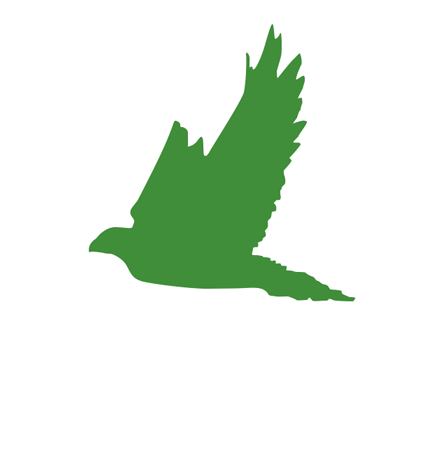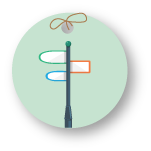An official UAE delegation participated in the Eighteenth Conference of the Parties (CoP) of the Convention on International Trade in Endangered Species of Wild Fauna and Flora (CITES), which witnessed the presentation and discussion of many documents and decisions related to the protection of species, the implementation of the convention, in addition to many meetings and side events aimed at promoting the achievement of the objectives of the convention.
The UAE official delegation included members from the Ministry of Climate Change and Environment, being the administrative authority implementing the convention, and the Environment Agency - Abu Dhabi as the scientific authority executing the convention, in addition to the participation of the Sharjah Environment and Natural Reserves Authority, the Ras Al Khaimah Environment Protection and Development Authority, the Fujairah Municipality and the International Fund for Houbara Conservation.
During the conference, held in Geneva, Switzerland from 17 to 28 August 2019, the UAE delegation supported a number of recommendations proposed by the Convention’s General Secretariat, including a recommendation to remove the UAE from the CITES national ivory action plans, based on its efforts to combat illegal trade in ivory. These efforts included submitting national reports to the convention’s secretariat, setting up a comprehensive Elephant Trade Information System (ETIS) to track illegal ivory trade and other elephant products, launching capacity-building programs and cooperating with local authorities and the private sector to track and seize illegal shipments passing through UAE territories.
The delegation also supported the recommendation to include Arabic as a primary language in the Convention by participating in the working group formed to discuss the possibility of including Arabic in the Convention. The profile of youth participation and empowerment was also supported to ensure their participation in wildlife conservation and decision-making processes in the Convention.
The conference witnessed a number of important discussions, including a review of the Convention's strategic vision, cooperation with multilateral environmental organizations and conventions, examining reports on capacity-building and discussing proposals for the UN World Wildlife Day.
Discussions were also devoted to amending the decision on youth participation in the Convention, reviewing several executive topics and revising existing decisions on executive provisions, general compliance, trade regulation, exemptions and special trade provisions.
With regards to species-related issues, participants reviewed documents on illegal trade in cheetahs, draft resolutions on the conservation of amphibians, reports and documents on coral reefs, sharks, rays, elephants, hawksbill turtles, sea horses, monkeys, rosewood, lions, rhinos, and African gray parrots, as well as discussing proposals to amend species annexes.
On the sidelines of the conference, the UAE delegation held a series of bilateral meetings with several countries and non-governmental organizations to discuss protecting and conserving biodiversity and endangered species in order to strengthen the country's efforts in this field.
The Ministry of Climate Change and Environment, in cooperation with the Sharjah Environment and Natural Reserves Authority and the International Fund for the Houbara Conservation, organized a special event to review the UAE's experience in preserving and propagating endangered species, most importantly, the Houbara.
The General Secretariat of the Convention recommended closing the file of illegal trafficking in cheetah, after all the recommendations referred to in previous meetings were fulfilled, where the challenges of reducing this type of illegal trafficking were discussed and appropriate solutions were devised to protect cheetahs through cooperation with international and international organizations, exchanging experiences and information between the concerned countries, in addition to carrying out capacity-building workshops, studies and questionnaires to analyze the status of the challenges and threats facing cheetahs.
The General Secretariat of the Convention also reviewed the legislation enforced in all member states to regulate the international trade of endangered species of animals and plants. The revisions classified the UAE in the first category, which means that the legislation in force in the UAE regarding the trade in endangered species meets the requirements of the Convention.
The conference praised the UAE model for its best practices in regulating the possession of dangerous animals, especially the large cats family, through enacting laws and regulations and enforcing deterrent penalties for the possession of these dangerous animals.
The Convention on International Trade in Endangered Species of Wild Fauna and Flora (CITES) is one of the most important international conventions aimed at regulating international trade in these species and their parts and derivatives so that international trade does not threaten the survival of these species in their natural habitats.
CITES works by subjecting international trade in specimens of selected species to certain controls. All import, export, re-export and introduction from the sea of species covered by the Convention has to be authorized through a licensing system. Each Party to the Convention must designate one or more Management Authorities in charge of administering that licensing system and one or more Scientific Authorities to advise them on the effects of trade on the status of the species.
The Conference of the Parties to the CITES Convention, held periodically every three years, is the main platform through which progress in the conservation of species listed in the annexes is reviewed, proposals for amending species lists in annexes I and II are revised and documents and reports submitted by the parties, standing committees, the secretariat and work teams are studied. These will enable the General Secretariat of the Convention to make provision, adopt the necessary budget for a more effective work and present recommendations to improve the efficiency of the implementation of the convention, as well as adopting resolutions and member states position on the proposed resolutions.

 Nearby Happiness center
Nearby Happiness center  Converting PDF files to accessible HTML
Converting PDF files to accessible HTML Probelm Opening files?
Probelm Opening files? knowledge Center
knowledge Center MS Word, MS Excel,PDF Files
MS Word, MS Excel,PDF Files e-Services
e-Services Service Directory
Service Directory  Change Screen Resolution
Change Screen Resolution Find Information
Find Information